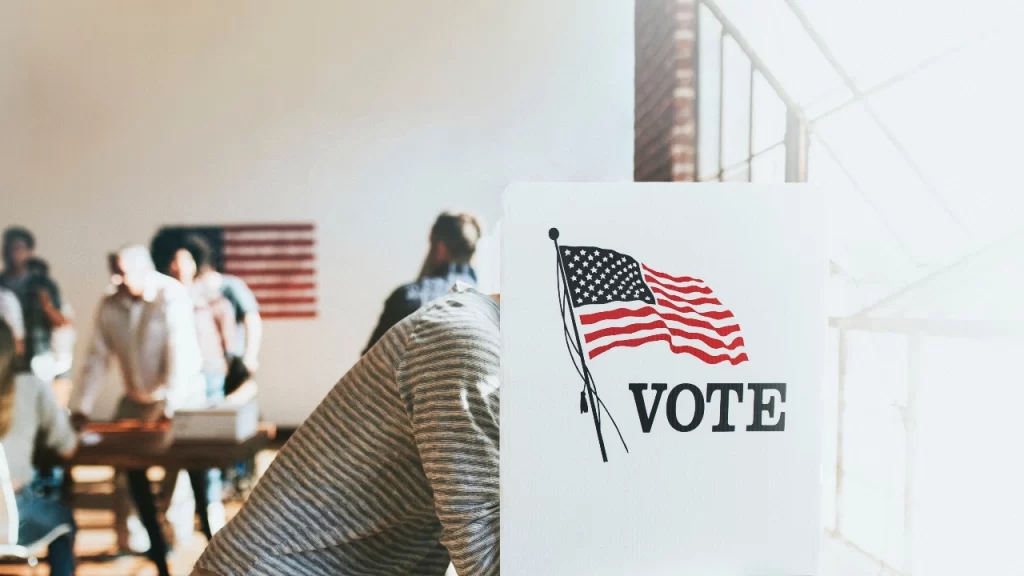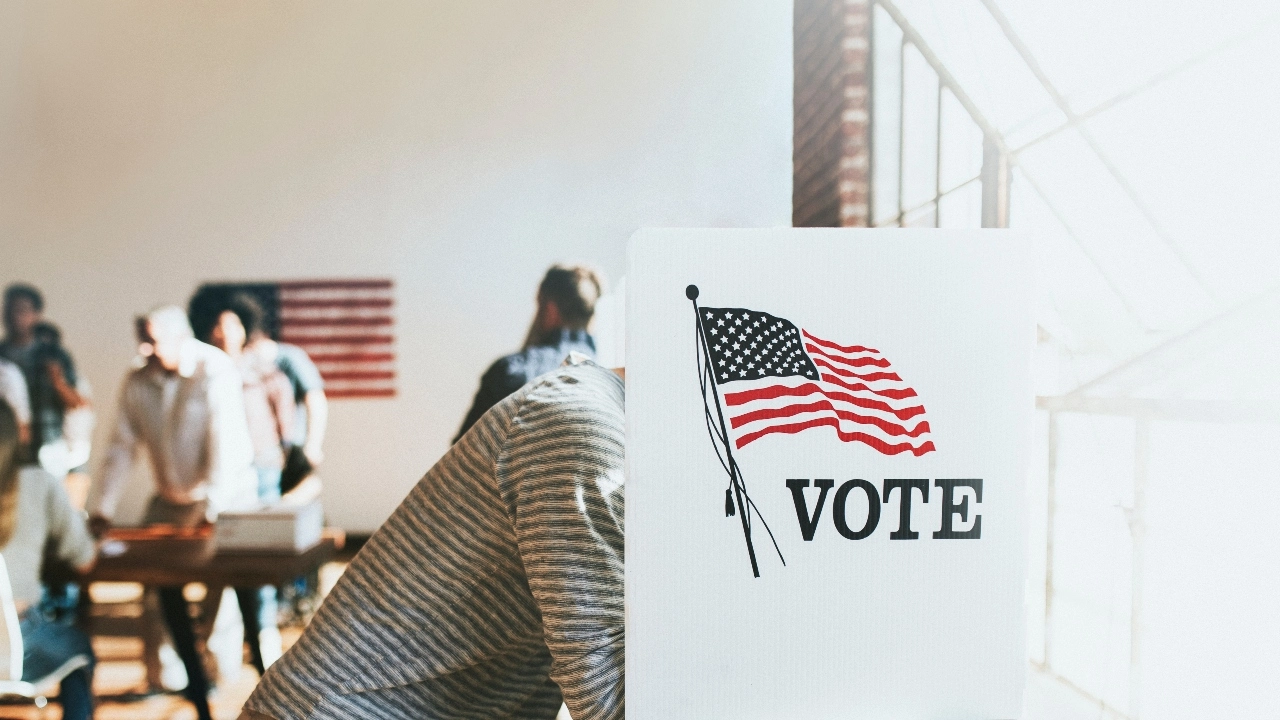
(This story is part of a series examining state ballot initiatives as well as key issues and races that voters will consider on Nov. 8.)
Adult-use marijuana sales could grow by more than $1.5 billion a year if voters approve new recreational markets on the ballot this Election Day, but observers say that will prove difficult.
At the same time, voters nationwide will decide which party controls Congress and how much political capital those lawmakers might be willing to spend on key reforms that could reshape the nation’s $30 billion-plus marijuana industry. And many key races are projected to be decided by slim margins.
This year’s election looks unlikely to be a repeat of the clean sweep seen in 2020, when voters in all five states where marijuana legalization was on the ballot voted yes.
On Tuesday, the question of adult-use legalization is mainly before voters in traditionally conservative states where polling suggests an uphill climb.
In particular, voters in Arkansas, Maryland, Missouri and North Dakota will vote whether to establish new recreational markets that together could generate nearly $1.7 billion in new sales in their first year, according to MJBizDaily estimates.
By year four, those four markets together could total more than $2.8 billion in adult-use sales.
Voters in South Dakota will be voting on a narrower measure that would permit possession and home cultivation.
With uncertainty in Washington DC swirling, most observers predict a modest victory Tuesday for the legalization movement – and, by extension, the marijuana industry – that will herald more of the same inevitable growth seen over the past half-decade. But there will be no rapid, viral expansion.
“We’ll continue to see the same slow, steady progress towards expansion at the state level,” predicted Marc Hauser, president of Hauser Advisory, a California-based consulting firm. “The industry’s progress is still at the state level, and I think will be that way for some time.”
Billion-dollar baby: Maryland a shoo-in win
Ten years after voters in Colorado and Washington state decisively approved the first adult-use laws in the U.S., 19 states now permit the commercial cultivation and sale of recreational marijuana.
Barring an unforeseen reversal, Maryland is expected to become the 20th state to legalize adult-use cannabis.
Recent polling shows more than 70% of Maryland voters are in favor of a measure that would legalize possession and consumption of cannabis by next July.
“I think Maryland is going to be the one to go forward,” said Mary Pryor, the co-founder of Cannaclusive, which advocates for minority participation in the cannabis industry.
If approved, the ballot measure also would call on Maryland legislators to create a regulatory framework to govern the eventual launch of a commercial market.
Sales would be expected to start in 2024 or 2025 and, according to MJBizDailyestimates, could total $550 million-$600 million in the first year and as much as $1 billion in the fourth.
Maryland’s existing demand and the friendly atmosphere is one reason why Florida-based Trulieve Cannabis, that state’s largest medical marijuana company and a national player, donated $50,000 to the measure.
Chicago-based marijuana multistate operator Green Thumb Industries donated another $25,000.
Difficulties, pro-industry allegations in Arkansas, Missouri
The steep challenges confronting the marijuana industry in the rest of the country is on display in Arkansas and Missouri.
Despite much larger donations from existing MMJ operators, legalization advocates as well as staunch prohibitionists in those states are united in opposing legalization measures that, according to polling, could fail.
According to critics, the way these measures are written to benefit those existing players at the expense of newcomers -including social equity participants – are a major reason support has been elusive.
In Arkansas, supporters of Issue 4 reported raising $13.3 million through Nov. 1 – an astronomical sum that Karen Sebold, a professor of political science at the University of Arkansas, expects to set or come close to a statewide record.
Of that, $7 million came from three donors – all of whom hold one of the eight MMJ cultivation licenses allowed under state law and would be guaranteed by law to supply the lion’s share of the adult-use market.
If Issue 4 does win, adult-use sales could begin at the state’s existing 40 medical marijuana dispensaries as soon as March.
MJBizDaily projects sales would total $350 million-$400 million in the first year and as much as $650 million by year four.
New entrants seeking cultivation licenses would be capped at no more than 250 plants, whereas the eight existing cultivators could grow for the new adult-use market with no plant-count restrictions.
Sales would be subject to a 16% tax, among the lowest in the country.
An October poll showed 50% of voters in support, with 6% undecided, down from 60% in support in September.
Opposition from some legalization advocates who say the measure is a handout to business – including the author of the 2016 MMJ amendment – as well as opposition from prominent elected officials like Gov. Asa Hutchinson and Sen. Tom Cotton, both Republicans, may be playing a role.
Similar dynamics are at play in Missouri, where prominent Black leaders including the state NAACP are opposing another industry-funded measure criticized as too industry-friendly.
And that’s a friendly characterization. An op-ed in a traditional Black newspaper called Amendment 3 “sinister” and “monopolistic.”
Other prominent voices making serious accusations include Secretary of State Jay Ashcroft, who is opposing the measure and recently said that “serious allegations that the people behind this amendment wrote this amendment as a way to enrich themselves” are “credible.”
An unknown number of existing vertically integrated “comprehensive facilities” would be first in line to apply for new “comprehensive permits” that would allow them to sell cannabis medically and recreationally as soon as Dec. 8.
MJBizDaily projects sales would total $500 million to $550 million in the first year and as much as $900 million by year four.
An early allotment of up to 48 new “microbusiness” licenses would be available to equity operators, who would be capped at no more than 250 plants and could wait more than a year for their permits, critics point out.
This is partially why the state Democratic Party also declined to endorse Amendment 3 on the basis that it “may negatively impact” people of color and low-income citizens.
As written, the measure would also make “it difficult for those who do not currently have a license to enter the industry,” according to the party’s endorsements.
Current polling suggests a toss-up, with 48% of voters in favor compared with 35% opposed and 17% undecided, according to a late September poll.
All that adds up to “opposition that’s very concerning” for legalization supporters, Cannaclusive’s Pryor noted.
Prairie home cultivation?
For South Dakota voters, Tuesday’s election is something of a redux: 54% of voters in 2020 approved a measure to permit the commercial cultivation and sale of adult-use marijuana.
But a state-sponsored lawsuit endorsed by Gov. Kristi Noem invalidated that measure.
This time around, Measure 27 would merely allow adults to possess and use cannabis, with the “industry” limited to whatever adults could manage to grow with cultivation limits of no more than three plants allowed at home.
Recent polling from South Dakota State University suggests a toss-up.
Across the border in North Dakota, as much as $285 million in cannabis could be sold annually within four years of voters approving Measure 2.
The ballot item would allow adults to possess up to an ounce of marijuana, allow three plants to be grown at home and leave regulating an industry, including details such as taxation, up to the state Legislature.
Despite the deliberately “conservative” and industry-neutral drafting of the measure, the state’s law enforcement and business lobbies are both opposed to Measure 2.

